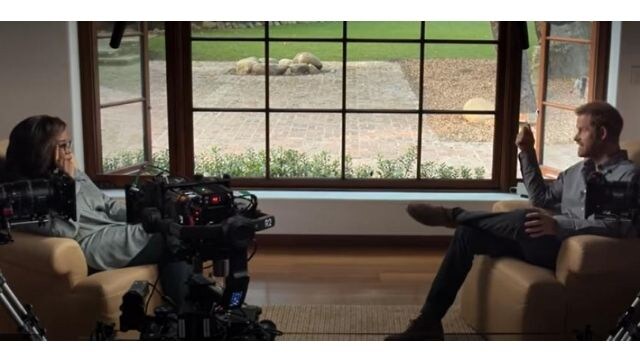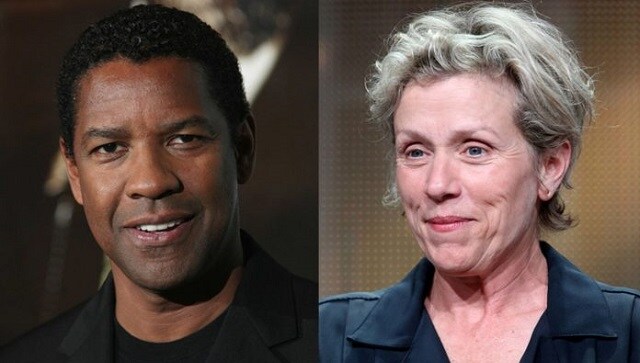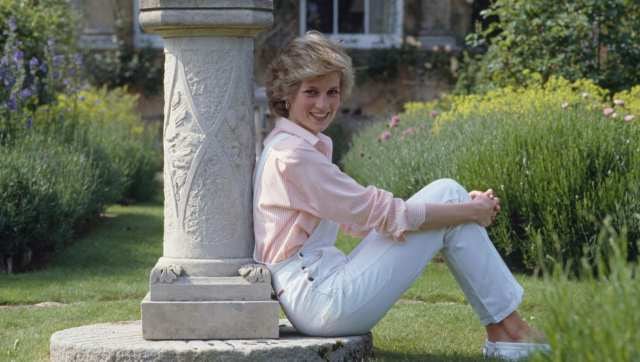The Me You Can’t See on Apple TV+ is an empathetic, sombre examination of mental health and fractured lives
The series isn’t just about Prince Harry, but a kaleidoscopic view of mental health issues that strike down not just the weak and the feeble but also the perceivably strong or the have-it-alls

Mental health, all things considered about the year and a half we’ve just had is going to be humanity’s next evolutionary hurdle. From hushed social deformity to a suddenly tangible ailment threatening the world, mental health has courtesy of the COVID-19 pandemic moved to the centre of conversations around health and well-being. Relegated to realms of suspicion and controversy the journey from the Page-3 tabloids to earnest discussions within the household has come at a significant cost. So many people have lost lives because no one was prepared to listen, or worse, they couldn’t speak or had no one to speak to. Things are still not perfect. We reject mental health issues as weaknesses or abnormalities or are bound to the idea of strength being a reflection of all that you keep hidden or under the lid. Oprah Winfrey and former royal Prince Harry, have joined hands for the Apple TV+ series The Me You Can’t See, a sombre opening-up of the lid, about fractured lives and the stigma that even some of the most illustrious names in the world have faced, for acknowledging as much.
pandemic moved to the centre of conversations around health and well-being. Relegated to realms of suspicion and controversy the journey from the Page-3 tabloids to earnest discussions within the household has come at a significant cost. So many people have lost lives because no one was prepared to listen, or worse, they couldn’t speak or had no one to speak to. Things are still not perfect. We reject mental health issues as weaknesses or abnormalities or are bound to the idea of strength being a reflection of all that you keep hidden or under the lid. Oprah Winfrey and former royal Prince Harry, have joined hands for the Apple TV+ series The Me You Can’t See, a sombre opening-up of the lid, about fractured lives and the stigma that even some of the most illustrious names in the world have faced, for acknowledging as much.
It’s hard on one level to fathom why people might want to sit through a 5-episode series of people sharing their traumas when there is so much to feel sickened and defeated by already. On that note, the series picks the right tools of limiting the stories to conversations rather than recreating or reimagining them as choreographed set-pieces, something true crime documentaries are guilty of overdoing – even when they portray. This sense of empathy perhaps flows through Winfrey’s masterly invocation of her journalistic powers, the ease with which she can ask the toughest questions, and her ability to clearly articulate them. The series begins with a musical crescendo, a heartwarming track with a voiceover that leads us to Harry and Winfrey, sat on their sofas, discussing the former’s issues. “Pain that doesn’t get transformed, gets transmitted” Harry says, at one point. The honesty of the former prince is seldom doubtable, and it is his pieces throughout the series that stand out, given the stakes.
That said, the series isn’t just about Harry, but a kaleidoscopic view of mental health issues that strike down not just the weak and the feeble but also the perceivably strong or the have-it-alls. Through various personal stories including the likes of celebrity chef Rashad Armstead and Lady Gaga, the series goes expands into various dimensions, exploring race, stardom, identity, competitive obsessions and the myriad reasons that can become the roots of long-running mental health problem. Not all people featured in the series are, thankfully, celebrities. There is Crystal, for example, an Asian American student whose identity becomes the cause of her depression. Then there Zak, Robin Williams’ son who provides and intimate view of her tender relationship with his celebrity father. Zak humbly admits to not having fully understood his father’s situation. “I wasn’t sure how I could help my dad. I wanted to know him better, but couldn’t,” he says about the guilt he know feels, and the disorders he may have himself inherited from his father.
What works wonderfully in this series, is that despite the high-stake act of Prince Harry, several other stories manage to pull you in different directions, and offer you a place somewhere in them, for your own. The boxer Ginny Fuchs’ story though candidly narrated by her, is particularly interesting for how someone believed to be tough on the outside could be so vulnerable or broken on the inside. “There came that point where I thought anything could be better than living like this,” she says of her OCD and the desire to succeed, which turns into obsession before turning into her biggest obstacle. One that she couldn’t cross without the help of someone else. As said, it's moments when Prince Harry, practically drifts further away from his family and heritage that take, at least, the prize in being the most sensational if not the most affecting. There is not much that is new, except his honesty and his blunt expression of the truth. Moments when prince Harry recalls his mother are especially touching. “I don’t think I’ve felt her presence more in life than the last year,” he says. Harry admits to having considered drugs, been in therapy for four years and “having learned more in that period than I did in the 32 years before”.
Through the stream of sentiment that this series overflows with, there are some genuinely hair-raising moments. Like Lady Gaga’s humbling admission of having suffered from depression while she was both essaying and subsequently collecting the rewards for her Oscar-winning performance. “Nobody knew,” she says smiling, the wicked clarity of her confession simply overwhelming to take – where do you separate her performance from her depression? Watching the whole series in one go can be a bit of a task if you see it as misery after misery being piled out. See it as people owning their stories, shedding weight and coming out as troubled and in need of help, and you feel it does its job. Celebrity activism isn’t always the best pan to serve this kind of dish in, but in Oprah’s magnanimous hands, things seem to fall into place. Her ability to mesmerise with speech alone, is unrivalled. For it feels therapeutic to even listen to her, with glass shattering clarity say “We need to start asking tell me what happened to you and not what is wrong with you.”
also read

Apple Original Films, A24 team up for The Tragedy of Macbeth, starring Denzel Washington and Frances McDormand
Joel Coen's directorial debut The Tragedy Of Macbeth will release in cinemas later this year ahead of its launch on AppleTV

Former BBC chief Tony Hall resigns as Chair of National Gallery amid Princess Diana interview fallout
Hall, who was criticised for his "woefully ineffective" probe into Martin Bashir's 1995 interview with Princess Diana, said that remaining in the position would be “a distraction to an institution I care deeply about”

Princes William and Harry condemn BBC's use of ‘deceitful’ means to secure explosive Princess Diana interview
An inquiry said journalist Martin Bashir showed fake documents to gain access to the princess and the BBC covered up what it knew about Bashir’s actions

.jpg)